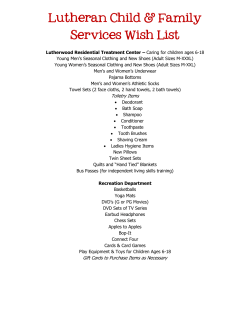
Dandruff Patient information from the BMJ Group
Patient information from the BMJ Group Dandruff Most people get dandruff from time to time. More severe dandruff seems to be linked to yeasts that grow on your scalp. Most anti-dandruff shampoos work by killing these yeasts or stopping them growing. We've brought together the best research about dandruff and weighed up the evidence about how to treat it. You can use our information to talk to your doctor or pharmacist and decide which treatments are best for you. What is dandruff? Dandruff is flaky skin on your scalp. Some dandruff is normal, because your top layer of your skin flakes away naturally over time. But dandruff is sometimes caused by a medical condition that can benefit from treatment. Seborrhoeic dermatitis is a skin condition that causes flaky or inflamed skin. It seems to be linked to yeasts that grow on oily parts of your body, like your scalp or around your nose. When it affects your scalp, it can cause large flakes of skin. What are the symptoms? Seborrhoeic dermatitis of the scalp can cause severe dandruff. The flakes tend to be oily, and they may be a white or yellowish colour. You may also get itchy or inflamed skin that looks a bit like sunburn. What treatments work? Lots of shampoos are available to help with dandruff. Just washing your hair will help to remove flakes, but anti-dandruff shampoos also contain chemicals to control yeasts or reduce inflammation on your scalp. Try to avoid getting anti-dandruff shampoos in your eyes, and rinse well with water if you do. Shampoos you can buy yourself Most people start off by trying a commonly available anti-dandruff shampoo, such as one that contains zinc pyrithione. A well-known brand is Head and Shoulders. Other common anti-dandruff shampoos contain coal tar. Brands include T-Gel and Polytar AF. One study found that using a coal tar shampoo for four weeks worked better than an ordinary, non-medicated shampoo. Some people don't like the smell of tar shampoos, but many products are perfumed to try to reduce this problem. For more severe dandruff, you can try a shampoo containing ketoconazole. Ketoconazole is a drug that kills fungi, including yeasts. One brand name for ketoconazole shampoo is Nizoral. You use it twice a week to get rid of dandruff, or once every two weeks to stop © BMJ Publishing Group Limited 2014. All rights reserved. page 1 of 3 Dandruff dandruff coming back. In studies, people who used a ketoconazole shampoo for a few weeks had less dandruff or flaky skin, and less itching and redness. Occasionally, people find that ketoconazole irritates their scalp. There's a bigger risk of getting skin irritation if you've recently used a steroid treatment on your skin. Another treatment that's used for more severe dandruff is selenium sulphide. This is a chemical that helps to kill fungi. Brand names for selenium sulphide shampoo include Selsun and Head and Shoulders Intensive Treatment Dandruff Shampoo. You use the shampoo twice a week for two weeks, once a week for two further weeks, and then whenever you need it. Side effects don't seem to be common with selenium shampoos. A few people get skin irritation. Some people find the shampoo bleaches their hair slightly or turns their scalp an orange colour. If you colour, bleach, straighten, or curl your hair, try not to do these things around the same time as using a selenium shampoo. Either do these things two days before or after using the shampoo, or rinse your hair very thoroughly with cold water before colouring or heat-styling your hair. If you have a crust of dry or scaly skin on your scalp, it may help if you get rid of it before you use other treatments. Some doctors suggest applying warm olive oil, or using a salicylic acid shampoo. Salicylic acid is a chemical that helps to break down hard or scaly skin. Brands that contain salicylic acid include Meted (salicylic acid with sulphur) and Capasal (salicylic acid with tar). Tea tree oil is an alternative remedy that is sometimes used for fungal infections. One study found that a shampoo containing 5 percent tea tree oil helped with dandruff when used every day. Treatments you can get from a doctor If you have dandruff caused by severe dermatitis of the scalp, and other treatments haven't helped, your doctor may suggest using a steroid shampoo or lotion, often along with an antifungal treatment. One steroid that comes as a lotion or shampoo is betamethasone (brand names include Bettamousse and Betnovate). There hasn't been any good research looking at whether steroid shampoos and lotions can help people with dandruff, but your doctor may think they're worth trying. Steroids can have side effects, but using a steroid shampoo for a short time shouldn't cause serious problems. Possible side effects include thinning of your skin or slight changes of skin colour. What will happen to me? Treatment can help get rid of dandruff, although it often comes back. You may need to use your anti-dandruff shampoo again from time to time. You may be able to use your shampoo regularly to help stop dandruff coming back. Ask your doctor or pharmacist how often you should be using your treatment. © BMJ Publishing Group Limited 2014. All rights reserved. page 2 of 3 Dandruff This information is aimed at a UK patient audience. This information however does not replace medical advice. If you have a medical problem please see your doctor. Please see our full Conditions of Use for this content. For more information about this condition and sources of the information contained in this leaflet please visit the Best Health website, http://besthealth.bmj.com . These leaflets are reviewed annually. © BMJ Publishing Group Limited 2014. All rights reserved. Last published: Sep 05, 2014 page 3 of 3
© Copyright 2025










